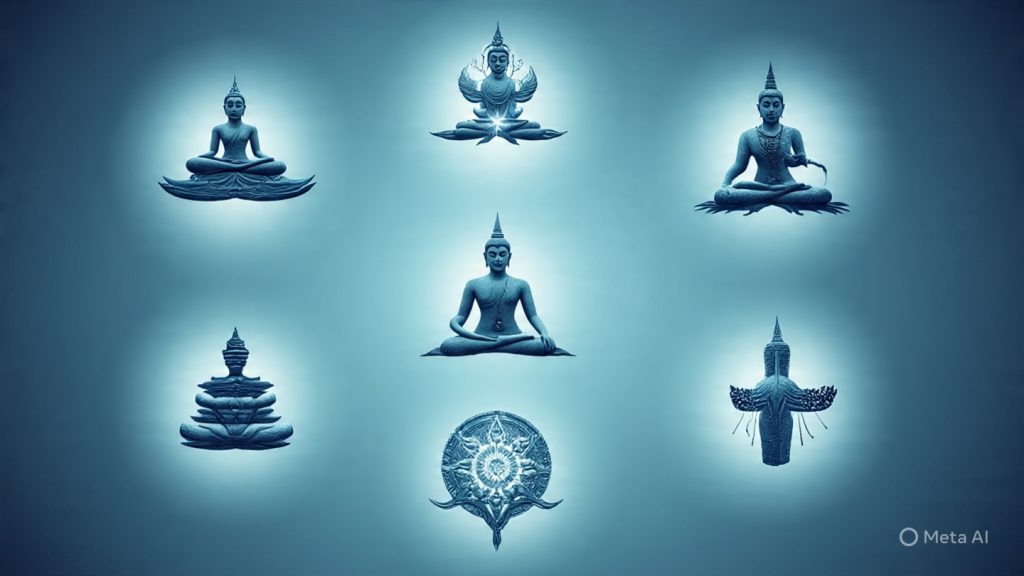Introduction
Every religion gives guidance to help people live a meaningful and peaceful life. In Jain Dharma, the path shown by Lord Neminath Swami, the 22nd Tirthankar, rests on the foundation of five great vows, known as the Panch Mahavratas.
These vows are not only rules for monks and nuns but also guiding principles for ordinary people. They teach us how to live with truth, compassion, simplicity, and discipline. In today’s modern world, where stress and conflicts are common, these vows are more relevant than ever.
In this blog, let us explore each vow in detail, its meaning, and how we can apply it in daily life.
The Five Great Vows (Panch Mahavratas)
1. Ahimsa (Non-Violence)
Lord Neminath’s life itself became a living message of Ahimsa. On his wedding day, when he heard the cries of animals kept for slaughter, his heart melted with compassion. He immediately renounced worldly life to protect all living beings.
- Ahimsa means not harming any living being in thought, word, or action.
- It includes avoiding physical violence and practicing compassion in speech and thoughts.
💡 In Modern Life:
- Be kind to all living beings—choose vegetarian or vegan food.
- Avoid harsh words, gossip, or hatred.
- Protect the environment by reducing harm to nature.
2. Satya (Truth)
Neminath Swami emphasized that truth should always be spoken with compassion and care. Truth without kindness can become harsh, while lies create distrust and bondage.
💡 In Modern Life:
- Be honest in work, business, and relationships.
- Avoid spreading rumors or misinformation.
- Speak truth in a gentle and respectful manner.
3. Asteya (Non-Stealing)
Asteya means not taking anything that is not willingly given. It is not only about stealing material things but also about respecting others’ time, ideas, and dignity.
💡 In Modern Life:
- Avoid piracy of books, movies, or software.
- Respect others’ creative work and give credit where it is due.
- Value time—don’t waste your own or others’.
4. Brahmacharya (Celibacy / Self-Restraint)
For monks and nuns, Brahmacharya means complete celibacy. For householders, it means loyalty, moderation, and discipline in desires. Lord Neminath Swami’s renunciation on his wedding day is the ultimate example of Brahmacharya.
💡 In Modern Life:
- Avoid overindulgence in food, pleasures, or addictions.
- Be loyal and respectful in relationships.
- Practice discipline in using technology and social media.
5. Aparigraha (Non-Possession / Non-Attachment)
Neminath Swami taught that excessive attachment to wealth and possessions causes suffering. True happiness lies in simplicity and freedom from greed.
💡 In Modern Life:
- Practice minimalism—keep only what you need.
- Share resources with the needy.
- Focus on values and experiences, not on material objects.
Panch Mahavratas for Monks and Householders
- Monks/Nuns (Mahavrata – Great Vows): Practice these vows in their purest form—absolute non-violence, truth, celibacy, and complete renunciation.
- Householders (Anuvrata – Small Vows): Practice them in a practical way—reducing violence, speaking truth, limiting possessions, and living with self-discipline.
This flexibility makes Jain Dharma universal—it allows everyone to walk the path of purity according to their capacity.
Why the Five Vows Are Important
- Foundation of Spiritual Growth: Without these vows, progress toward liberation is not possible.
- Inner Peace: They reduce anger, greed, ego, and attachment—the roots of suffering.
- Social Harmony: They build trust, compassion, and justice in society.
- Universal Relevance: These are not limited to Jainism but are values for all humanity.
Applying the Five Vows in Modern Life
- Ahimsa: Switch to eco-friendly products, protect animals and nature.
- Satya: Build honest communication in relationships.
- Asteya: Respect intellectual property online.
- Brahmacharya: Balance your lifestyle with moderation.
- Aparigraha: Declutter your home and mind, live simply.
Even small steps make a big difference in personal growth and social harmony.
Inspirational Story of the Vows
The most inspiring story from Neminath’s life is his renunciation at the wedding pavilion. Hearing the cries of animals, he realized that true joy cannot exist in the presence of cruelty. He left behind royal luxuries, chose compassion over tradition, and walked the path of liberation.
This shows the supreme power of Ahimsa, Aparigraha, and Brahmacharya—they make us stronger than attachment, greed, or social pressure.
Relevance of Panch Mahavratas Today
- In a violent world, Ahimsa offers peace.
- In an age of fake news, Satya is essential.
- In a corrupt society, Asteya is integrity.
- In a culture of indulgence, Brahmacharya teaches balance.
- In a consumerist age, Aparigraha gives freedom.
Thus, these vows are not ancient rules but timeless solutions for modern problems.
Conclusion
The Five Vows of Jain Dharma, embodied by Lord Neminath Swami, are not just religious practices but universal values that can transform our lives. They guide us to live with compassion, honesty, simplicity, and peace.
As Neminath Swami’s life shows:
🌿 “True Dharma begins with compassion for every living being.” 🌿
If we bring even a little of these vows into our daily life, we will create a world filled with harmony, kindness, and happiness. ✨

